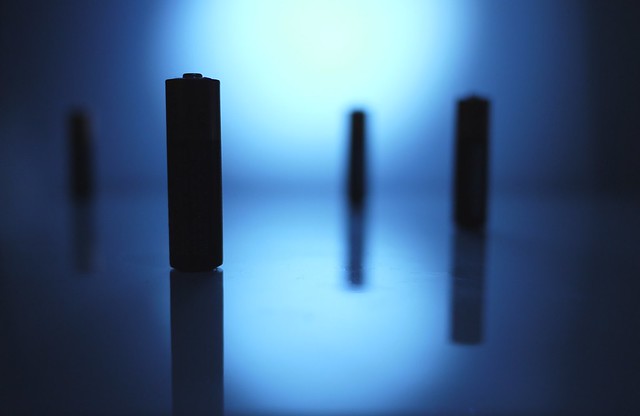Storage Temperature for Lithium-Ion Batteries- Storage and Protection
Feb 14, 2020 Pageview:1631
Since the time the electronic manufacturers launched the Lithium-Ion batteries in their phones, there have been a lot of discussions going around. Whether it is about storing or the protection of the batteries, You must have heard about many misconceptions of storing the batteries, such as you should completely discharge the battery before charging.
This article will discuss all the storage factors of Lithium batteries and understand how temperature plays a role in battery life. By following all the instructions, you can use your battery with more efficiency and improved performance . Thus, we should investigate these batteries.
What temperature should Lithium-ion batteries be stored at?
At some point in life, you must have searched what the minimum temperature required is? People must have gone through the situation where the outside temperature has so much moisture level, which makes your phone and batteries wet or the other way around is that in the summer season, due to hot weather, the batteries catch the temperature quickly. Does it affect your battery?
The important facts that you should be aware of the temperature requirements of batteries
The temperature which is acceptable for any region is ?20?°C –60?°C. The optimal temperature of the lithium batteries is between 15?°C–35?°C. If the temperature gets below or above these limits, then the battery will lose the electrolytes and may drain fast an as well as it can cause security problems such as fire explosion.
Low temperature found in most countries such as Iceland, Finland, Russia, where the temperature is low as 0°C, especially in hybrid electric vehicles and pure electric vehicles; the efficiency gets affected. It will show moderate compound response action and charge-move speed, which prompts the reduction of ionic conductivity in the electrolytes and lithium-particle diffusivity inside the electrodes. Such diminishing will bring about the decrease of power capability and decrease the performance.
In the high temperature, the temperature gets risen because of heat generation in the LIB. It will also decrease the capacity, power, performance, but more incapacity. The high internal resistance is the main cause of loss of power.
Can Lithium-ion batteries be stored in the cold?
Do you wonder how you can store lithium batteries in the cold region? You may have heard about batteries not working in a colder place. Storing the batteries involves the precautions which need to be followed. Especially the countries located in the arctic regions face a lot of issues to store LIB. These batteries stored in the colder region need steps to be taken care of. As you know, cold temperatures affect the batteries negatively, which includes modern batteries, but it is somewhat better than the old LIB.
As you know, there are some precautions which one needs to know how to store the batteries in low temperatures.
Cleaning the battery with the mixture of baking soda and water removes the dirt and corrosion. It is the main reason for the discharging level of the batteries. One more reason is it decreases the life span of the battery.
In winters, it is better to warm the batteries as the temperature gets low; it would be better to warm the conditions. The battery generates internal resistance due to which the temperature gets high, and further, it can be used.
Never forget to recharge your batteries. As it is said, the batteries should never be discharged completely. The advantage of lithium-ion batteries is that I hold charge more than other batteries.
Routine preventative conservation which is required for the batteries to work under the colder conditions
Visual Inspection
Specific gravity inspection
Testing the circuits and electrical loads
Watering
Equalization
How should lithium-ion batteries be stored?
Lithium-ion batteries are generally used in electronics, including computers, cell phones, and other portable devices. At times, it happens we don’t use the batteries or long period. When we use we want our batteries to work efficiently for that, we need to care about the maintenance, performance and as well as storage. So let’s see what the factors we need to take off are
Using the battery charger which is used for lithium-particle batteries, should only be used while charging your batteries. Lithium particle batteries ought to be charged in any event at 50 percent to maintain a strategic distance from future charging issues. If your battery does not have charge, then you should have charged it for 30 minutes to find a good pace.
There should be a cool, dry spot to store your lithium batteries. Do not put your batteries in storm cellar, washroom, or different territories of your home that are or may get wet. The perfect temperature is in the capacity at a field of 0 and 60 degrees F.
Abstain from putting your batteries in a cabinet that is in direct daylight for any piece of the day. Lithium particle batteries may detonate if it presented to extreme warmth, or light can impact in the sustainability of the battery.
Take out your batteries and incompletely charge them or use them in an electronic gadget, anyway quickly, like clockwork. This will resuscitate charges and maximize the life of the battery. A lithium battery quickly loses its charge while it is taken out.
If a lithium battery is damaged and the content comes out, then cleaning the spill of the lithium battery requires precautionary measures.
The humidity is an important factor which plays an important role. Condensation gets developed between the terminals of the battery which can cause short. Cleaning both the terminals and ensuring that there are no wet conditions. The terminals should be covered with the covers which can protect it from the wet weather.
These are the storage as well as the protection conditions to follow for lithium batteries. Following all the factors will give you a healthy life of the battery and will not lead to the degradation in efficiency, productivity, of the batteries.
Leave Message
Hottest Categories
-
Hottest Industry News
-
Latest Industry News












